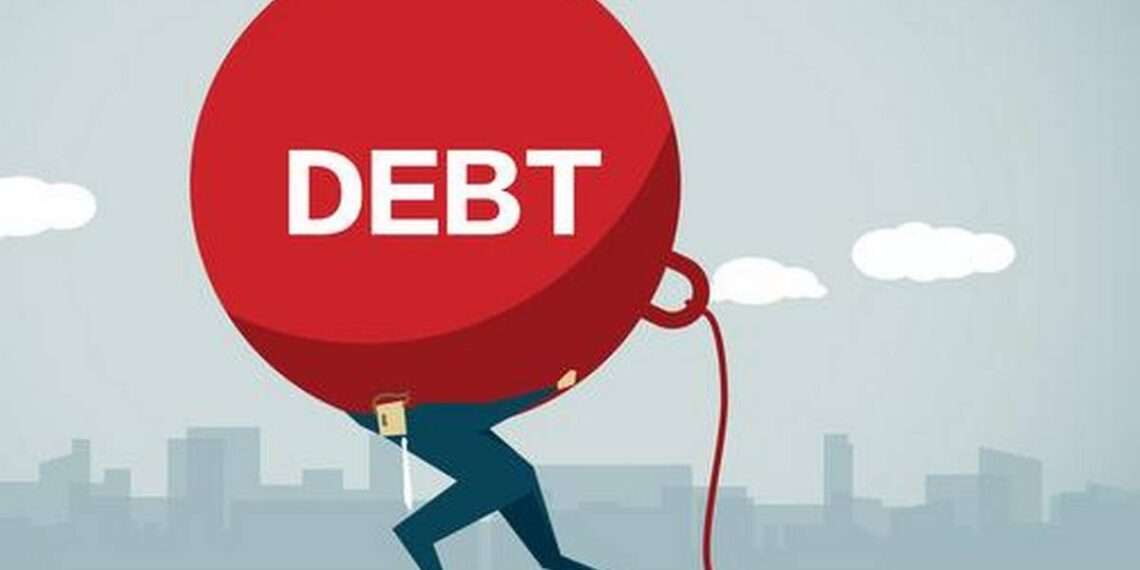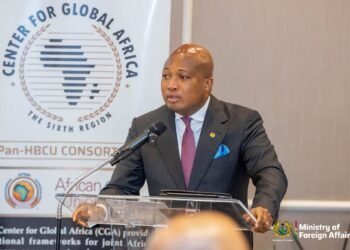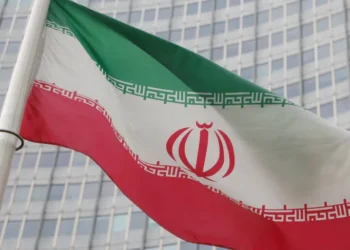Ghana has emerged as the fifth-highest debtor to the International Monetary Fund (IMF) in Africa, according to the Fund’s August 2025 data. With an outstanding credit of Special Drawing Rights (SDR) 2.70 billion, equivalent to about $3.6 billion, Ghana’s debt profile has remained unchanged from July 2025.
While this ranking keeps Ghana below economic heavyweights like Egypt, Cote d’Ivoire, and Kenya, the country’s position underscores the mounting reliance on external financial support to navigate persistent economic challenges. The IMF’s lending data highlights how African economies continue to lean on Bretton Woods institutions for stability in times of fiscal stress.
At the top of the IMF debt chart is Egypt, holding the largest outstanding credit at SDR 7.18 billion. This figure, though slightly reduced compared to July 2025, reflects Cairo’s sustained dependence on IMF support amid its foreign exchange and inflationary pressures.
In second and third place are Cote d’Ivoire (SDR 3.10 billion) and Kenya (SDR 3.02 billion), both of which have accessed IMF financing to address balance of payment difficulties and fund structural reforms.
Behind Ghana are countries such as the Democratic Republic of Congo, Ethiopia, Tanzania, Cameroon, and Zambia, rounding up Africa’s top ten IMF borrowers. Collectively, these figures reveal the growing weight of IMF debt across the continent.
Ghana’s IMF Debt Journey
Ghana’s current debt to the IMF is a reflection of the multiple support packages it has received in recent years to shore up its struggling economy. Faced with high inflation, currency depreciation, and rising debt servicing costs, the country turned to the IMF for a bailout program that has been crucial in restoring some degree of fiscal discipline.
The SDR 2.70 billion outstanding debt includes funds drawn under various facilities, particularly the Extended Credit Facility (ECF) and other emergency support measures. While these interventions have stabilized the economy temporarily, analysts warn that Ghana’s continuous dependence on the IMF could hinder long-term growth prospects.
The Risks of IMF Overreliance
Borrowing from the IMF is not inherently problematic. In fact, IMF loans are designed to support countries in stabilizing their economies, implementing reforms, and ensuring debt sustainability. However, excessive reliance on IMF financing carries risks.
For Ghana, the dangers lie in the loss of policy autonomy, as IMF programs often come with strict conditionalities—ranging from fiscal austerity to structural adjustments. These conditions, though aimed at restoring macroeconomic balance, can sometimes lead to social and political tensions.
Moreover, the debt servicing burden itself could crowd out public investments in infrastructure, health, and education, creating a vicious cycle where economic growth is slowed, and reliance on external funding persists.
The fact that Ghana remains among Africa’s top five IMF borrowers raises concerns about the country’s long-term debt sustainability. With already high external debt levels, the IMF obligations add to an already strained fiscal position.
Nonetheless, Ghana’s policymakers argue that IMF programs provide a framework for implementing tough reforms that might otherwise be politically difficult. For instance, efforts to restructure the energy sector, enhance domestic revenue mobilization, and streamline public spending are tied to the ongoing IMF program.
The challenge remains whether Ghana can graduate from IMF dependence by building stronger local economic foundations—diversifying exports, boosting industrialization, and fostering a more resilient financial sector.
Avoiding the Debt Trap
Experts warn that African nations, including Ghana, must avoid falling into a perpetual IMF debt trap. Sustainable economic growth requires not just financial bailouts but also bold reforms to strengthen local industries, enhance productivity, and improve governance.
For Ghana, reducing overreliance on IMF financing will mean boosting domestic revenue mobilization, managing public debt prudently, and encouraging private sector-led growth. The path forward may be challenging, but escaping excessive IMF dependence is critical to safeguarding the nation’s economic independence.
Ghana’s ranking as the fifth-largest IMF debtor in Africa, with SDR 2.70 billion in outstanding credit, paints a picture of both necessity and vulnerability. While IMF funds have provided essential breathing space, the risk of long-term overdependence looms large. For Ghana to reclaim its economic independence and credibility, it must move beyond short-term fixes and commit to long-term strategies that ensure self-sustaining growth.
READ ALSO: Women in Mining Urged to Embrace Responsible Practices for Growth


















